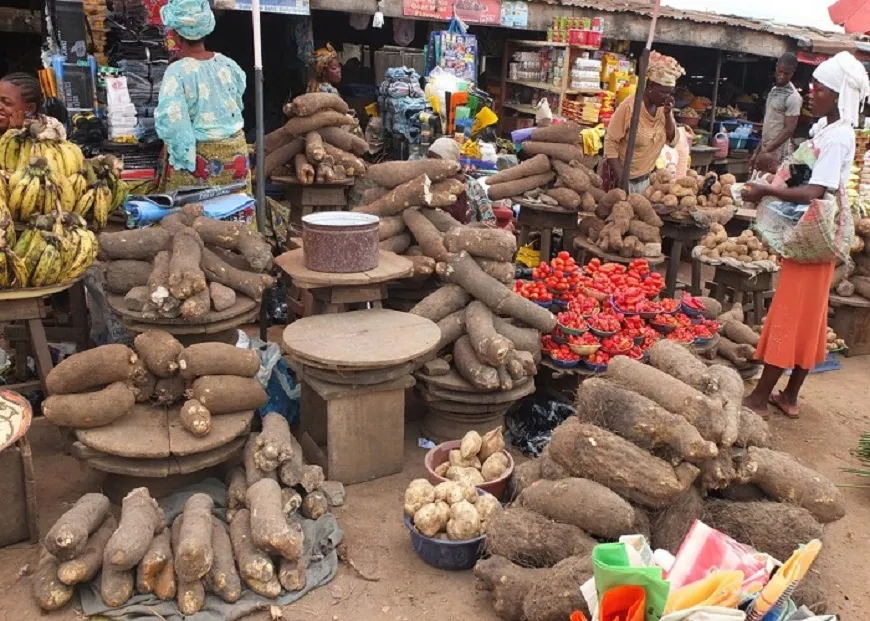National Issues
Hunger Rising, Hope Falling: Nigeria’s Food Crisis Deepens -By Abdulazeez Toheeb Olawale
Nigeria’s food inflation problem is no longer just an economic issue — it is a national security threat. A hungry population is a vulnerable population. The government must treat this crisis as an emergency by securing farmlands, supporting displaced farmers, fixing transport bottlenecks, and strengthening social protection for the most vulnerable households.

Nigeria’s food crisis is tightening its grip on millions of households, turning everyday survival into a luxury. While official figures say inflation is easing, the reality in markets nationwide tells a harsher story — food is slipping out of the reach of ordinary Nigerians at a frightening pace.
The National Bureau of Statistics reports food inflation above 20%, but most Nigerians know the real figure is far higher. A bag of rice is now beyond many families. Staples like garri, beans, yam and vegetables have doubled or tripled in price within months. Even the simplest meals have become unaffordable.
At the heart of this problem lies the worsening insecurity across farmlands. From Kaduna to Benue, Zamfara to Plateau, farmers are abandoning their fields due to bandit attacks, kidnappings, and illegal “taxes” imposed by armed groups. Entire farming communities have been displaced, and thousands of hectares of farmland lie unused. When farmers cannot plant, harvest, or move food safely to markets, scarcity becomes inevitable — and prices soar.
Transporting food has become another nightmare. Truck drivers report paying multiple illegal levies at checkpoints manned by both security personnel and criminal gangs. These costs are passed directly to consumers, further inflating prices.
International agencies are sounding the alarm. The UN projects that over 27 million Nigerians are currently food insecure, with the number expected to rise above 34 million if urgent action is not taken. These statistics represent real suffering: parents skipping meals for their children, families relying on one meal a day, and communities where malnutrition is quietly rising.
Yet, despite billions budgeted annually for agriculture, Nigeria’s food system remains fragile. Rural roads are broken. Storage facilities are nonexistent. Farmers lack inputs like fertilizer and improved seeds. The weak naira makes imported staples even more expensive, pushing more people into hunger.
Nigeria’s food inflation problem is no longer just an economic issue — it is a national security threat. A hungry population is a vulnerable population. The government must treat this crisis as an emergency by securing farmlands, supporting displaced farmers, fixing transport bottlenecks, and strengthening social protection for the most vulnerable households.
Hunger is a slow-burning fire. If Nigeria fails to act now, that fire may grow into something far more difficult to control.
Abdulazeez Toheeb Olawale is a young journalist and social commentator who writes on national issues, governance, and public policy in Nigeria.










